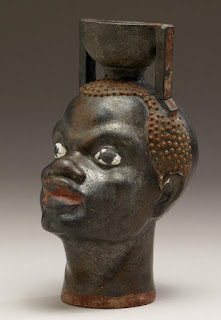Macedonia’s Plea for a Seat in NATO Falls on Busy Ears
More than two decades after an independent Macedonia was born from the bloody ethnic wars in the Balkans, its desire to join NATO remains stalled by an old question: “What’s in a name?”
Greece, an alliance member since 1952, was vehemently opposed to initial desires of its neighbor to adopt the name Republic of Macedonia, saying it implied territorial claims to the Greek province of the same name, an assertion Macedonia has publicly disavowed.
To remove that hurdle, the government in the capital, Skopje, years ago said the country would apply to international organizations under an interim name until the bilateral dispute was resolved. It has since joined the United Nations and applied to NATO and the European Union as the Former Yugoslav Republic of Macedonia, a name usually reduced to its acronym, Fyrom.
But as NATO presidents and prime ministers prepare for a summit meeting next month in Chicago, the ascent of new members is not even on the agenda. Meetings will focus on the future of the alliance war effort in Afghanistan – mostly how to end it — and ways to reshape member militaries around a concept called “smart defense.”
Macedonia’s foreign minister, Nikola Poposki, is in Washington this week to make the case for Fyrom. He cites a list of statistics to prove that his tiny nation – with just 2 million people – already is giving more than its fair share to NATO missions, even as just an aspirant to membership.
On a per-capita basis, Macedonia is the fifth-largest contributor of forces to the NATO mission in Afghanistan, providing about 175 people responsible for providing security around the NATO headquarters in Kabul and across the Afghan capital’s diplomatic zone, which includes the American Embassy. Macedonian troops also are training Afghan security forces.
The effort eats up about 10 percent of the republic’s defense budget. (Macedonia previously contributed about 500 troops to the American-led effort in Iraq.)
“We are an exporter of security forces to NATO,” Mr. Poposki said in an interview on Thursday. “But we are in the waiting room for membership.”
He pledged that Macedonian troops would remain in Afghanistan until the formal end of the NATO mission, now set for December 2014, and said that there was no pressure in Parliament for an early withdrawal, as there is in some member nations.
He said Greece’s security would be only enhanced by dropping its objections, as adding a NATO member to its borders would bind Macedonia to all the articles of the alliance’s mutual-defense pact. “We are no threat to the territorial integrity of Greece,” Mr. Poposki said.
There are few indications of movement on the issue, however. Greece is in the midst of a financial crisis, hoping to avoid becoming the first member nation of the European economic zone to default.
In such an environment, there is little incentive within the Greek political system to resolve an international dispute over its neighbor.




